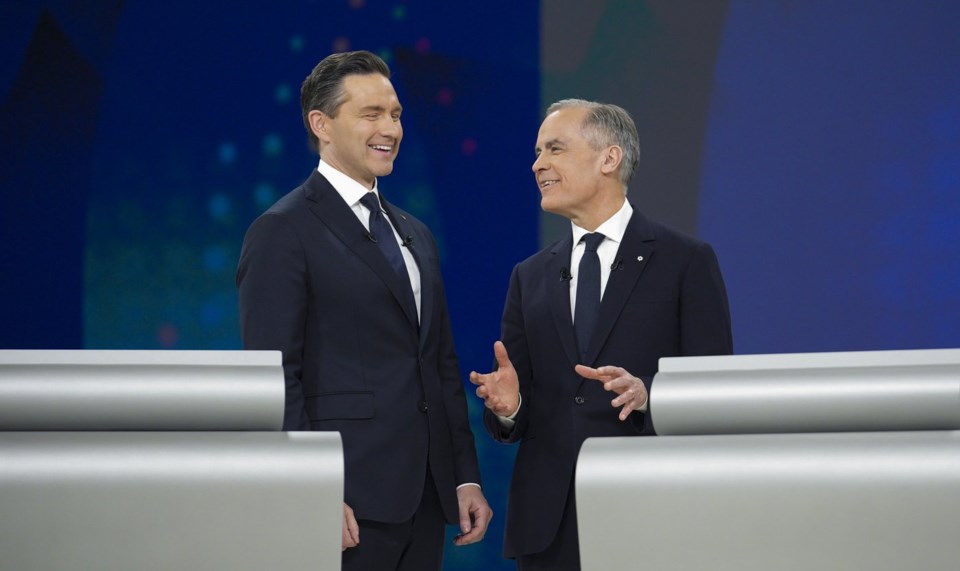OTTAWA — While the recent federal election turned into a tight race between the Liberals and Conservatives that left other parties trailing far behind, a new poll suggests most Canadians don't want the country end up with a two-party system.
The poll of over 1,600 Canadians, conducted by Leger Marketing for the Association for Canadian Studies between May 1 and 3, suggests only 21 per cent of Canadians think the country would be better off with a system where two parties dominate the political landscape.
Forty-nine per cent say a two-party system would not be good for Canada, while 30 per cent say they don't know.
The poll, which was conducted online and can't be assigned a margin of error, suggests that people in Ontario and Alberta are the most open to a two-party system, with 23 per cent of people in those provinces saying it would be a good thing.
Twenty-two per cent of people in British Columbia and 20 per cent of respondents in Quebec say they think Canada would be better off under such a system.
At 30 per cent, Conservative respondents were the most likely to think Canada would be better off with a two-party system, compared to 17 per cent of Liberals and 14 per cent of NDP supporters.
Jack Jedwab, president of the Association for Canadian Studies, said the election focused on two parties — the Liberals and the Conservatives — which received over 80 per cent of the vote.
"Now that the ... dust is settled on the election, it seems that Canadians are comfortable with not having a system that is as polarized politically as the one that this election seemed to give rise to," Jedwab said.
"Canadians are still, in terms of our political culture, different from the United States in terms of being more welcoming, or more receptive is a better word, to multiple options in their electoral system."
While recounts in some ridings are still underway, the Liberals inched another seat closer to a majority government on Saturday when a judicial recount declared their candidate the winner in the Quebec riding of Terrebonne by a margin of just one vote.
It brought the Liberals to 170 seats in the House of Commons, two shy of the 172 needed for a majority government. The Conservatives hold 143 seats, the Bloc has 22 and the NDP has seven.
The poll suggests that 44 per cent of Canadians are happy with the election results, while 40 per cent are not.
The poll also suggests many Canadians don't want to see another election any time soon.
Only 39 per cent of respondents say they'd like to see another federal election in the next two years, while 44 per cent say they don't.
Alberta respondents are the most likely to want another election soon, at 50 per cent, compared to 39 per cent of people in B.C., 38 per cent of Ontarians and 33 per cent of Quebecers.
Of the respondents who want another federal election within two years, 70 per cent are Conservatives, 23 per cent are NDP supporters and 15 per cent are Liberals.
Jedwab said it comes as no surprise many Conservatives want another election as soon as possible. He said there was a "roller-coaster ride of expectations" before the election and the party may want an election sooner to build on perceived momentum.
Jedwab said if the Liberals are able to stay in power long-term, despite being in a minority government situation, that likely would encourage Conservatives to reflect on whether they want Pierre Poilievre to lead them into another election in four years.
"If the polls are any indication and the Liberals' standing continues to stay where it is or changes in a better direction, the likelihood of an election in the next two years is very, very low, which has a bearing on, I think, what the Conservatives' strategy will be going forward," Jedwab said.
This report by The Canadian Press was first published May 13, 2025.
Catherine Morrison, The Canadian Press




